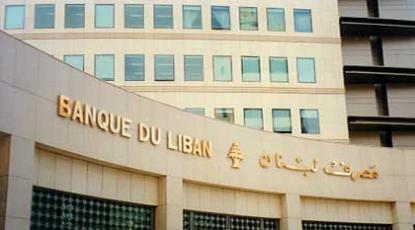BEIRUT/LONDON, – Lebanon has paid off a Eurobond of $1.5 billion that was due to mature on Thursday, plus the coupon, two financial sources familiar with the matter said.

The repayment was viewed as a test of the government’s willingness to meet its debt obligations at a time when Lebanon, one of the most heavily indebted states in the world, is grappling with an acute economic crisis.
The central bank has previously said it stands ready to repay the state’s maturing dollar-denominated debt to protect the country’s financial credibility.
Ahead of the repayment, the bond was trading close to par, reflecting market expectations that the government would meet its obligations. In contrast, many of Lebanon’s longer-dated international issues are trading at less than half their face value as investors worry about the risk of distress ahead.
The repayment will heap further pressure on already-strained reserves, which were insufficient to cover Lebanon’s gross financing needs over the next year, said Jason Tuvey, senior emerging markets economist at Capital Economics.
The central bank said this month it had usable foreign cash reserves of $30 billion and total assets of $38 billion.
“The repayment of Eurobonds is a drain on FX reserves to the extent that they are held by non-residents, so in this case we are looking at around half of the $1.5bn redemption,” said Farouk Soussa, senior economist at Goldman Sachs.
“As we go further out on the Lebanese curve, foreign holdings drop off significantly, meaning external bond repayments will become less of a burden on reserves.”
Lebanon issued two new bonds on Nov. 27, according to Refinitiv data. These were a $1.5 billion with a maturity of 10 years and a $1.5 billion with a maturity of 16 years.
Economists said the new issues were a financing mechanism to help account for the payment of the maturing bond by the central bank.
The cost of insuring Lebanese sovereign debt against the risk of default has more than doubled since the start of civil unrest on Oct. 17. On Thursday Lebanon’s 5-year credit default swaps (CDS) stood at 2,602 basis points, IHS Markit data showed. Defaulting on the $1.5 billion repayment would have been a mistake and set Lebanon on a “hard-landing scenario”, said Nasser Saidi, an economist and a former central bank vice governor.
“It is important at this delicate juncture to rebuild confidence in the banking sector and avoid actions or policy measures that would increase financial vulnerability,” he said.
Credit default swaps implied a probability of Lebanon defaulting on its debt of 58% within the next year and 78% within the next five years, IHS Markit calculated.
REUTERS

Leave a Reply
You must be logged in to post a comment.